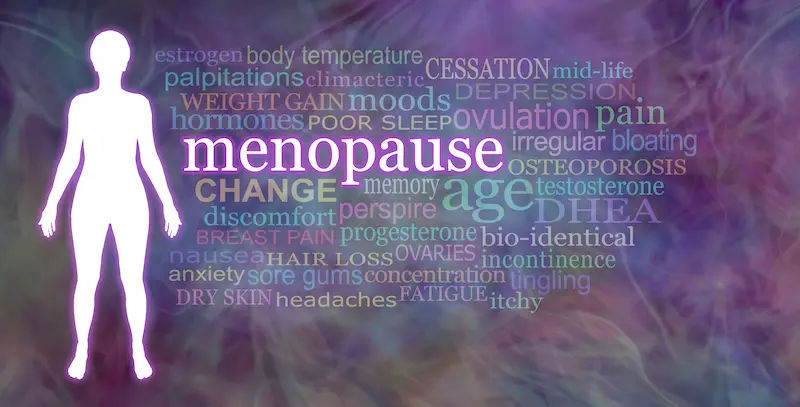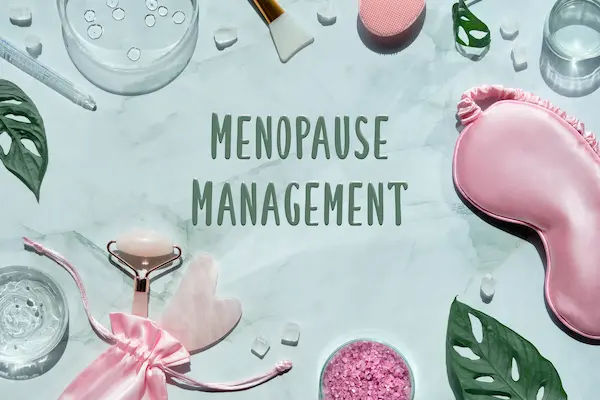Menopause and Mental Health Issues
Menopause and mental health are closely related to each other. Knowing the details of this intricate relationship makes way for effective management and recovery.

Written by
Last updated on 13th Jan, 2026
Menopause is a biological process that occurs in every woman in her late forties and or fifties. It signals the completion of the childbearing age, and most women experience some physical and psychological changes when they get there. The more traditional symptoms like hot flashes and sleep disorders are famous, but their impact on mental health is mostly overlooked. In this phase, women often develop some sort of cognitive problems such as abrupt mood swings, anxiety, and depression, among others. So, understanding the causes and symptoms of menopause paves the way for better management.
Common Mental Health Issues During Menopause
There are several mental disorders associated with menopause, most of which are presumed to be caused by fluctuating hormones. Some of the problems that might be encountered by women during menopause are:
Changing Moods: Hormonal changes result in constant shifts in behavioural patterns and emotional conditions, which may distort interpersonal interactions and everyday tasks.
Depression and Anxiety: Oestrogen loss, which affects the neurotransmitter serotonin, is known to cause anxiety and changes in mood, putting people in a vulnerable position to stress, anxiety, and depression.
Cognitive Changes and Memory Concerns: Most women suffer from forgetfulness and memory complications, which are known as ‘brain fog’ and hampers personal and working abilities.
The Hormonal Connection
The changes in body hormones during menopause affect the mental health of women. The key hormones involved and their impact on emotional well-being are:
The Impact of Oestrogen Hormones and Others
Female hormones, such as oestrogen and progesterone, affect mood and cognition. They reduce during menopause, and their shortage may result in anxiety, depression, and memory problems.
Effects of Hormonal Fluctuations on Mental Health
Hormonal changes during menopause interfere with the normal functioning of the chemical balance of the brain. This contributes to mood swings, irritability, and problems with memory. Thus, it affects mental health.
Fluctuating Hormones and Sleep Disturbances
Due to the hormonal imbalance during menopause, women face troubles with their sleeping patterns. Sometimes, it can lead to insomnia or poor-quality sleep, which can also aggravate mood and cognitive ability.
The Role of Cortisol in Stress and Anxiety
The cortisol levels rise during this period due to fluctuations in hormones, which leads to an increase in stress and anxiety levels. Thus, it affects the mental health of a woman.
Psychological Factors
Cognitive processes are an important determinant of mental health status during the postmenopausal period. The potential psychological factors are:
Women struggle to cope with the physical changes during this period.
As they gain weight, menopause often lowers the self-esteem of women.
Due to their aggravated mood and mood swings, they often end up behaving badly with their loved ones.
Women also struggle in their professional lives due to their disturbed cognitive abilities.
Sociocultural Influences
Social and cultural factors also play their part when it comes to the experience of women during menopause. Here is how socio-cultural factors affect mental health during this transition:
Cultural Attitudes toward Menopause
Cultural perceptions of menopause differ from one society to another, and this affects the emotional health of women. In cases where this is considered a negative sign, it strongly affects the women’s mental health, pushing them towards depression.
Societal Expectations of Women
Menopause increases stress and may make a woman feel inadequate and emotionally distressed because of society’s pressure to maintain youth and appearance.
The Role of Family and Community Support
Parental and community support can alleviate the emotional demands of the menopausal transition. It makes them feel valued and loved, which reduces anxiety and improves their quality of life.
Risk Factors for Mental Health Issues
Several factors may heighten the chances of acquiring mental health complications when going through menopause. They are outlined as follows:
Previous Mental Health History: Women who suffer from anxiety or depression are more likely than others to endure greater symptoms when they are going through menopause.
Lack of Social Support: Having little or no emotional support can present a challenge by increasing stress and severity of isolation, making coping during menopause much harder than it should be.
Chronic Stress or Life Events: Events like losing someone or changing jobs combined with constant stress can make a woman’s experience with menopause far more traumatising.
Poor Physical Health or Illness: The presence of any physical illness can make the emotional challenges even more difficult and thus further complicate mental health for women experiencing menopause.
Lifestyle Factors and Coping Mechanisms: While going through menopause, the inability to cope with stress, combined with an unhealthy lifestyle, can result in worse mental health.
Diagnostic Approaches
During menopause, mental health conditions can be diagnosed by studying signs and knowing when to see a specialist. Here are important points of how to go about it:
Recognising Symptoms of Mental Health Issues
Emotional changes like feeling irritated, sudden mood changes, and mood swings
Anxiety, feeling down or depressed
Memory issues like forgetting basic things or trouble focusing
Elevated stress or a feeling of giving up
When to Seek Professional Help?
Consult with a professional if:
The symptoms hinder day-to-day normal activities or relationships
If the issues persist for more than a few weeks
Adequate changes during self-care do not relieve emotions
The feeling of giving up and thoughts of self-harm
Treatment Options
Treatment of mental health symptoms during menopause is multifaceted. The main treatment areas are:
Hormone Replacement Therapy (HRT)
Hormone therapy is primarily prescribed to manage the changes in hormonal balance and reduce mood-related conditions such as anxiety, stress, or even depression.
Psychotherapy and Counselling
Different forms of psychotherapy, like cognitive behavioural therapy (CBT), can assist women in managing emotional stress, developing sound self-care practices, and enhancing their mental well-being during menopause.
Medication and Lifestyle Changes
Besides the medication, which includes antidepressants and anti-anxiety drugs, dietary changes, non-stressful exercises, and other activities are important for mental health during menopause. This includes an active, balanced lifestyle.
Coping Strategies and Self-Care
It is important to pay attention to self-care actions and coping mechanisms, which are important for mental health throughout this period. Here are several helpful practices that can be used by women experiencing this delicate period:
Mindfulness and Relaxation Techniques
Try to reduce stress and enhance emotional realisation through meditation
Practice yoga for clearing the mind and relaxation
Perform deep breathing exercises to manage anxiety and enhance calmness
Importance of Physical Activity and Nutrition
Different types of exercises paired with good nutrition significantly help stabilise mood, enhance energy levels, and improve other aspects of mental health throughout menopause.
Conclusion
Mental health throughout menopause is affected by different aspects, such as hormonal changes, psychology, and socio-cultural factors. Therefore, by understanding the hormonal influence and the relevant factors and discovering different treatment options, one can tackle his/her mental health. Also, by employing self-care methods, seeking therapy, and undergoing medical treatment, women can overcome this period and improve their mental health. These actions can help women go through menopause in a more manageable way. Focusing on mental health management is essential to ensure a better life during and after menopause.
Consult Top Obstetrician and Gynaecologist
Consult Top Obstetrician and Gynaecologist

Dr. Mona Yadav
Obstetrician and Gynaecologist
19 Years • MBBS, MD (Obstetrics & Gynaecology)
Dombivli
Nulife multispeciality, Dombivli

Dr. Sreeparna Roy
Obstetrician and Gynaecologist
8 Years • MBBS , MS (OBSTETRICS & GYNAECOLOGY), Fellowship in Infertility, Endoscopy & Ultrasonography), Fellowship in Laparoscopy & Hysteroscopy,DRM
Barasat
Diab-Eat-Ease, Barasat

Dr. Smita Ghatak
Obstetrician and Gynaecologist
10 Years • MBBS, DGO, DNB Obstetrics & Gynaecology
New Town
Prime Diagnostic and Polyclinic, New Town

Dr. Bharathi Balakrishna
Obstetrician and Gynaecologist
31 Years • MBBS,MD (Obstetrics & Gynaecology)
Bengaluru
Sanjeevini Speciality Health Care & Diagnostic Center, Bengaluru

Dr. Ritika Khurana
Obstetrician and Gynaecologist
16 Years • MBBS, DGO(GYNAECOLOGY AND OBSTETRICS)
Pune
Dr Rupali and Dr Ritika, Pune




